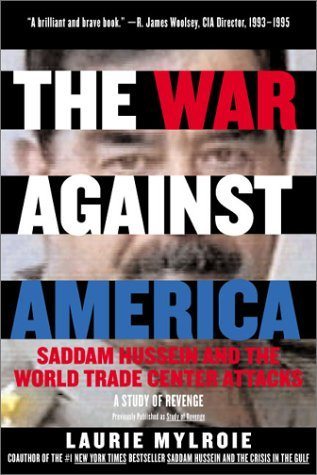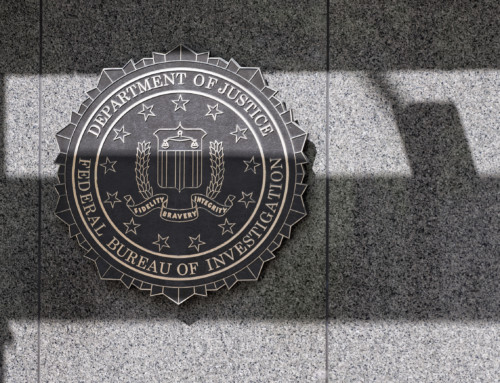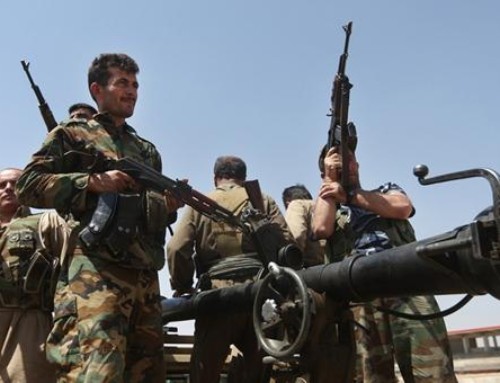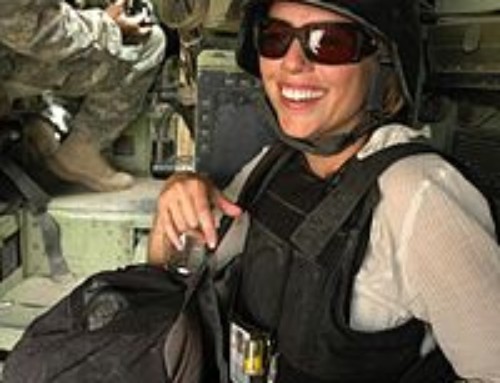“We have found no credible evidence that Iraq and al Qaeda cooperated on attacks against the United States.”
Statement No. 15 , 9/11 Commission Staff Report
Iraq continue(d) to be a safe haven a transit point, and operational node for groups and individuals who direct violence against the U.S., Israel, and our allies.
Senate Intelligence Report, Page 314
Our partisan establishment media, aligned with Michael Moore, John Kerry and the field of Democrat presidential candidates have spent the past year issuing anti-war/anti-Bush position statements that have been quoted worldwide and are source material for al Jazeera broadcasts and invocations to jihad by fundamentalist Imams in sermons throughout the Middle East. But now Kerry has stated that, even without our finding the WMD stockpiles, he still would have voted for the Iraq war, effectively rendering all his party’s anti-war verbiage hot air. What’s going on?
Kerry has managed to hang his congressional and press allies out to dry. Up until Kerry’s reversal, the press bias for Kerry and against Bush has been very reminiscent of that which it exhibited toward Nixon and the Viet Nam War, when it not only reported events but attempted to change them. Evan Thomas of Newsweek, conjectured that the current anti-administration bias in the media “may be worth 15 points.” Nowhere can we see this phenomenon more clearly displayed than in the press coverage of the Iraq war, its aftermath, and the recent government oversight reports. The San Francisco Chronicle editorial board, in its lead editorial on July 12th, War by Folly, offered a representative opinion. They wrote, “…the notion that the case for war was built on flawed information is well established by now…”
Correct. The notion that the case for war was flawed has been well established by the media and the Democrats who ran or are running for president. In addition to their editorials, most of the print media news stories covering the post war insurgency and the recent government oversight reports are also clearly partisan, selectively obfuscate key facts, and make the case that Bush’s justification for war has now been repudiated. A New York Times story, under the headline, Report Shatters Conventional Wisdom About 9/11 is representative, “…the bipartisan commission’s final report found no evidence of close collaboration between Saddam Hussein and al Qaeda, appearing to undermine a justification for the Iraq war.”
Regarding this war on Islamic terror, Daniel Henninger writes, “The facts can get us all killed.” Yet the partisan press and the politicized 9/11 Commission and the Senate Intelligence Committees have each produced reports that number above the obligatory 500-page limit but are riddled in tortuous ambiguity. It’s obvious that the Democrat committee members made sure their reports, when touching upon the justification for Bush’s war, contained wording that is vague, nuanced, purposely contradictory, or blacked-out in the public version. But even in the face of this duplicity on the parts of our elected officials, what follows here is only a partial list of Hussein’s ties to terror and WMD production that are common knowledge and are virtually bullet-proof:
Iraq Was Attempting to buy Uranium from Niger
The Senate Intelligence report concedes that both British Intelligence and Niger officials have produced documentation that confirms that Iraq was attempting to buy Uranium there. Perhaps the best proof that Joe Wilson is arguably a treasonous liar is the fact that the Kerry campaign website has scrubbed off all references to the “Niger whistleblower.” The RestoreHonesty sub website that Kerry campaign had set up to showcase all of Wilson’s accusations now simply directs the viewer back to its homepage. Berger, Wilson, and Michael Moore are or were Kerry advisors. So much for restoring honesty.
Iraq Clearly Had a Hand in The First Trade Center Attack
Ramzi Yousef, the attack leader, entered the U.S. on an Iraqi passport. Abdul Rahman Yasin, the son of an Iraqi father living in Baghdad, also entered the U.S. on an Iraqi passport in June of 1992. At 12:18 p.m. a van filled with explosives and cyanide exploded in the parking lot of the World Trade Center, killing six and injuring over 1,000. (If the first tower had collapsed on the other, the loss of life would have dwarfed 9/11.) Yassin was captured in New York and later admitted to mixing the chemicals for the bomb. At first, because he seemed so cooperative in providing details of the plot, and disclaimed any significant role in the bombing, the FBI released him. On March 5, 1993 Yasin fled to Baghdad. Documents captured in the Iraq war, prove he was put on an Iraqi intelligence service payroll. One of Yasin’s co-conspirator’s apartments in New York contained phone records which logged over one hundreds calls to Baghdad.
 In Laurie Mylroie’s book, Study of Revenge: The First World Trade Center Attack and Saddam Hussein’s War Against America, she points out that Arabs are notorious for celebrating anniversaries and that the attack occurred on the second anniversary of the Gulf War’s end. More importantly, for many months leading up to the attack, Hussein was publicly and continuously threatening a dramatic revenge against the U.S. in his state run media. Further, Jim Fox, head of the FBI’s New York office at the time of the bombing, and James Woolsey, the CIA Director under Clinton, from ’93 to ‘95, both concluded that Iraq was at least involved.
In Laurie Mylroie’s book, Study of Revenge: The First World Trade Center Attack and Saddam Hussein’s War Against America, she points out that Arabs are notorious for celebrating anniversaries and that the attack occurred on the second anniversary of the Gulf War’s end. More importantly, for many months leading up to the attack, Hussein was publicly and continuously threatening a dramatic revenge against the U.S. in his state run media. Further, Jim Fox, head of the FBI’s New York office at the time of the bombing, and James Woolsey, the CIA Director under Clinton, from ’93 to ‘95, both concluded that Iraq was at least involved.
 I spoke to Steve Hayes who wrote The Connection: How al Qaeda’s Collaboration with Saddam Hussein Has Endangered America and is one of the country’s leading authorities on his topic. He told me that while the Senate report accurately states that Iraq helped Yassin escape to Baghdad, it is in error by repeating the Iraq government line, that being Yassin was held in custody. “Captured documents prove that Yassin was on the Iraqi Intelligence payroll. Numerous eye-witness accounts and dozens of press reports describe him living freely in Baghdad,” Hayes told me. He writes “… President Bush issued (a warning) on September 20, 2001: From this day forward, any nation that continues to harbor or support terrorism will be regarded by the United States as a hostile regime. Based on the regime’s support for Yasin, Iraq qualified.”
I spoke to Steve Hayes who wrote The Connection: How al Qaeda’s Collaboration with Saddam Hussein Has Endangered America and is one of the country’s leading authorities on his topic. He told me that while the Senate report accurately states that Iraq helped Yassin escape to Baghdad, it is in error by repeating the Iraq government line, that being Yassin was held in custody. “Captured documents prove that Yassin was on the Iraqi Intelligence payroll. Numerous eye-witness accounts and dozens of press reports describe him living freely in Baghdad,” Hayes told me. He writes “… President Bush issued (a warning) on September 20, 2001: From this day forward, any nation that continues to harbor or support terrorism will be regarded by the United States as a hostile regime. Based on the regime’s support for Yasin, Iraq qualified.”
Mylroie writes that the Clinton Administration made no real effort to secure Yasin’s extradition, “One of several enigmas suggesting that the administration was not keen to draw attention to anything that pointed to an Iraqi role in the attack.”
The Assassination Attempt of President Bush the Elder – A Terrorist Act of Aggression
Two would-be Iraqi assassins were captured by Kuwaiti police. Their plot to kill the former president was corroborated by their independent confessions as well as numerous other sources. Although the plot isn’t referenced in any of the reports and doesn’t prove an al Qaeda link, no one, not even the pro-Kerry media, dispute the fact that Hussein was its architect. In short, the plot brands Hussein himself as a world-class terrorist, at war with the U.S. And like harboring Yasin, described above, arguably grounds for regime change by itself. One has to wonder if it became irrefutable that some tin-pot dictator had tried to assassinate Harry Truman, would Dwight Eisenhower have asked for the U.N.’s blessing before he took military action.
The Clinton Administration Knew that Iraq Was a Mortal Threat
Recently on syndicated radio program to promote his book Clinton told his interviewer that, when he was president, he and Al Gore would often pore over intelligence source documents and those they “never found a shred of evidence linking Hussein and bin Laden.” Clinton knew he was safe with the sympathetic interviewer.
But “neo-dove” Al Gore, back in 1992, made numerous speeches excoriating the senior Bush Administration for among other egregious security lapses “…a dangerous blindness to the murderous ambitions of a despot” and routinely quoted a Rand study that estimated 1,400 terrorists were openly operating out of Baghdad.
In the wake of embassy bombings, the Khobar Tower bombings, and bin Laden’s fatwa that urged Muslims everywhere to kill Americans, in 1998, the Clinton administration believed that it had enough reliable intelligence to issue a U.S. Justice Department indictment of bin Laden. Paragraph 4 reads, In addition, al Qaeda reached an understanding…it would not work against that government (Iraq) and that on particular projects, specifically weapons development, al Qaeda would work cooperatively with the Government of Iraq.
Clinton’s Defense Secretary, William Cohen, went off the “Bush-misled us” reservation” in testimony before the 9/11 commission and, defended his administration’s decision to bomb the Sudanese al Shifa pharmaceutical plant. He defended the bombing by testifying that they had telephone intercepts between the manager of the plant and the head of Iraq’s VX gas program. Also traces of EMPTA who’s only known use is for developing VX was found near the plant. Thirdly, he testified that the plant was equipped with surface to air missiles and was constructed by the Military Industrial Corporation, a Sudanese-based company largely financed by bin Laden.
It’s noxious to hear Democrats repudiate Bush for prosecuting a war against a regime they claimed was mortal threat to America.
Atta Is Reputed to Have Met with Iraq Intelligence Four Times
Although questions continue to swirl around Atta’s trips to Prague, it’s obvious that most of the media, the pro-Kerry press, seem desperate to disprove is that the 9/11 ring leader, Mohammed Atta, met with a senior Iraqi intelligence officer, a man by the name of Ahmed Khalil Ibrahim Samir al Ani. The editors of big media outlets must believe the Czech intelligence reports that connect the two men on April 4, 2001, just five months before 9/11, would cause the public to conclude that Iraq was allied with al Qaeda on the 9-11 attack. And this in turn would greatly deflate the “Kerry/Moore/ Bush-lied campaign.”
I asked Hayes what he thought about the oversight reports and specifically what he thought about the press treatment of Atta meetings. “The press reporting (relative to the above reports) on this has been inadequate and woefully inaccurate,” Hayes told me.
Numerous Czech and U.S. intelligence sources reported to Hayes that Atta met with the al Ani four times, twice in May of 2000. The final meeting in April was not witnessed by U.S. intelligence agents but was observed by Czech intelligence. As Hayes puts it, “Czech intelligence officers have told me that, if anyone tells you that the meeting didn’t happen, they’re either fooling you or fooling themselves.” Hayes not only details the meetings but, unlike his detractors in the media, he names his sources. He writes that Prime Minister, Milos Zeman, Interior Minister Stanislav Gross Martin Palous, Ambassaddor to the United States, Mr. Kmonicek, Ambassador to the United Nations, and Jiri Ruzek, Intelligence Chief, all confirmed the April 2001 meeting. The fact that the pro-Kerry coalition discounts the final Atta meeting is one more reason why many worry that Kerry could become the Commander-in-Chief. He and his supporters continue to show a complete disrespect for our allies including the very pro-American East Europeans. According to the Kerry campaign rhetoric, if they are not France or Germany, they don’t exist!
Typical of the anti-Bush media, Michael Isikoff, wrote in April of 2002, “… the much-touted Prague connection appears to be an intriguing, but an embarrassing, mistake,” and he quoted a senior (unnamed) law enforcement official.
The final 9/11Commission report is ambiguous about the April 2001 Atta/al Ani meetings. But it’s important to note that neither the 9/11Commission’s report nor the Senate report has attempted to actively discount the 2000 Atta/al Ani meetings reported to the Senate Intelligence committee. And the cowardly 9/11 Commission doesn’t even mentions the controversial Atta meetings with Iraqi Intelligence service.
Ansar al Islam and Abu Zarqawi are Bush’s Smoking Guns
Most people have heard of Zarqawi because he has been confirmed as the videotaped terrorist who beheaded Nick Berg. Ansar al Islam was an al Qaeda enclave in Northern Iraq that was ultimately supported by both bin Laden and Iraq. In asking Hayes about the public’s misperceptions related this topic; he admits it causes him a lot of frustration because it surrounds so important an issue, that being, national security. “I mean, as I say in my book, you have a telephone intercept where an Iraqi intelligence official is praising his Ansar al Islam contact and sending him a $100,000…There’s so much that we have like this that’s compelling.”
His book recounts how another former Iraqi intelligence agent, Abdul Rahman al Shamari, was captured by Kurdish forces in Northern Iraq and how his highly detailed confessions make him highly credible. Al Shamari claims that his division of the Mukhabarat provided Ansar al Islam with weapons and remembers delivering them a payment of ten million Dinars (roughly $700,000).
Hayes writes in The Connection, that around 1998, bin Laden established a base, ultimately called Ansar al Islam, in the northern Iraq/Kurdish province. Based on a non-aggression pact he had negotiated while based in Sudan in the early ‘90s, bin Laden requested and received support from Hussein on the new base. Together they recruited terrorists from around the Middle East to populate it. Hussein sent money, and arms. They both sent trusted lieutenants to operate as field commanders, one of whom was Abu Musab al Zarqawi.
With Ansar al Islam, bin Laden and Hussein’s common objective was to sow terror and wreak havoc in the newly independent Kurdish region which was inside the no-fly zone and which was allied with the U.S. Additionally, in case of the worst, Hussein offered bin Laden and his minions safe haven there. Satellite photos, taken after the fall of the Taliban in Afghanistan, show that in fact, many of bin Laden’s fighters did go there. Although bin Laden and Hussein did not control the region, Ansar al Islam was an island of resistance they jointly supported for terrorist/jihadist operations. It became the prototype of the ultimate terror cell. As Hayes puts it, “…combining the radical and the secular, rogue state and loose terrorist networks’ on a small-scale, precisely what American politicians from both parties had warned about for a decade.” The 9/11 Commission’s report is bi-partisan and tentative, but does limply support Hayes’s account. “There are indications that by then (2001) the Iraqi regime tolerated and may even have helped Ansar al Islam against the common Kurdish enemy.”
Documents uncovered since the fall of Iraq and the Senate’s report corroborate earlier intelligence showing that in the mid 90s, Zarqawi took on a central role in the Iraq/al Qaeda informal alliance. He reported to the Iraqi Intelligence service, received chemical weapons training, and began shuttling between the Ansar al Islam base in Northern Iraq, Baghdad, and Herat, Afghanistan. In Herat, he delivered weapons from Iraq to the Taliban and set up a chemical weapons training camp of his own. During the war in Afghanistan, Zarqawi received a severe wound on one of his legs and was able to return to Baghdad with a few dozen of his closest associates and recuperated in the Baathist regime’s most exclusive hospital. During the run-up to the Iraq invasion, Zarqawi was commissioned by Iraq Intelligence to set up sleeper cells to be activated should Baghdad fall. We are witnessing his activities now in the daily attacks on our forces, the bombing of civilians, and the capture and beheading of hostages.
Additionally, Jordanians were able to prevent a Zarqawi-led attack that may have combined both conventional explosives and chemical agents. Had this attack taken place, Jordanian officials have stated that, by their estimates, as many as 80,000 could have been killed. Therefore, in the person of Zarqawi, you have the smoking gun, the justification for President Bush to select Iraq for regime change. He provides the link that proves Hussein was definitely allied with our mortal enemy – al Qaeda and he was training and provisioning them to unleash chemical and biologic weapons on us and our allies. The Senate report goes further and corroborates much of Hayes’s story beginning with the discussion of Zarqawi’s assassination of American Lawrence Folley,
“one of the two suspects in the Foley murder stated that al-Zarqawi directed and financed the operations of the cell before during and after his stint in Baghdad…an associate of Foley’s killer left Jordan to join al-Zarqawi in Iraq after the murder to obtain weapons and explosives for future operations. Both suspects… mentioned that one member of the al-Zarqawi network traveled repeatedly between regime-controlled Iraq and Syria…
In reading the Senate Intelligence report sometimes the conclusions for various subsections contradict the evidence previously included in the body of the report. The Senate in this way used the report to cast doubt on some previous submissions and conclusions. But the Zarqawi/ Ansar al Islam story presented in Hayes’s book is not challenged. And it is so important because it includes both Hussein’s safe-harbor support for known al Qaeda members and the provisioning of them with chemical weapons.
Both reports level charges that the CIA specifically and the intelligence community in general missed the evidence that allowed the country to be massively attacked on 9/11. But they both fail miserably in assigning blame to the politicians and committees who worked to limit the power and funding of those agencies. Their own congressional oversight was clearly flawed and misguided but not mentioned in their vaunted reports. Also, the opposition media latched onto the charge leveled at the intelligence community for its “group think.” But in their own “group-think” mode, the anti-Bush media refuse to acknowledge that intelligence gathering by its nature will always contain uncertainties and “best guesses.” Detainees and “walk-in’s” aren’t always reliable and must be continuously vetted.
Nevertheless, the U.S., not by its choosing, is in both a military conflict as well as a war of ideas. In the run-up to the election, the Kerry campaign and his media allies will undoubtedly continue to try to shoot holes in pre-Iraq war intelligence, claiming they were “misled” (rather than misguided or even blinded by partisanship.) Their charge is about as serious a charge as anyone can make against a president. And their attacks will undoubtedly keep showing up on al Jazeera and on radical Islamic websites, giving our enemies aid and comfort. So the media owe it to the country not to leave out important facts, to quit their partisan-inspired “group think,” and in short, to get it right.
Thanks to people like Stephen Hayes, we now know some of Saddam Hussien’s connections to terror and dangerous weapons production are bullet proof. And with these bulletproof connections, the only responsible reaction for any commander-in-chief was to haven taken Saddam Hussein out. History will smile favorably on George Bush who did take action to defend his nation, despite the political risks, despite the bumbling Congressional keystone cops, and despite his legions of accusers in the partisan media.





